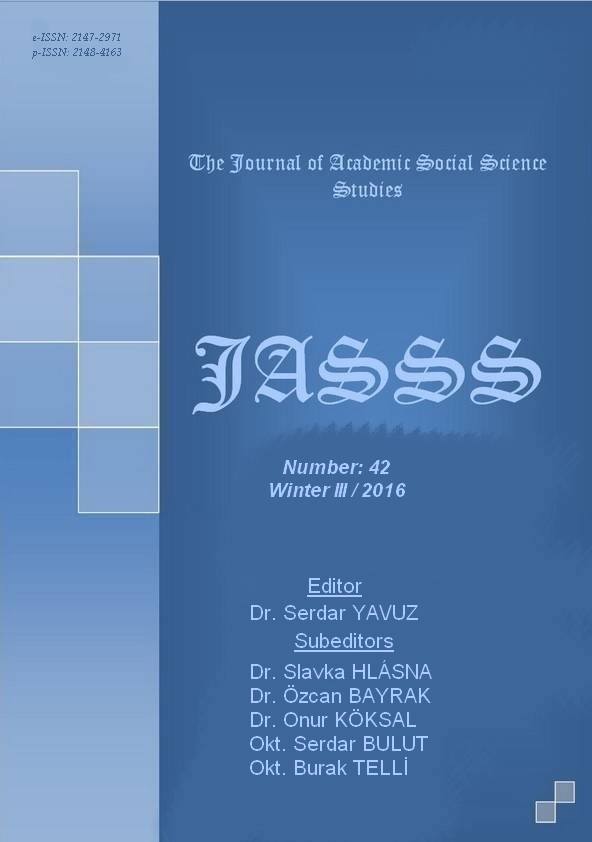OKUL ÖNCESİ EĞİTİME DEVAM EDEN BEŞ YAŞ GRUBUNDAKİ ÇOCUKLARIN AKRAN İLİŞKİLERİNE OYUN TEMELLİ EĞİTİM PROGRAMININ ETKİSİ
Author :
Abstract
Bu araştırma okul öncesi eğitime devam eden beş yaş grubundaki çocukların akran ilişkilerine Oyun Temelli Eğitim Programı’nın etkisini incelemek amacıyla yapılmıştır. Çalışmada ön test-son test kontrol gruplu desen kullanılmıştır. Araştırmanın çalışma grubunu Malatya il merkezinde iki anaokulunda eğitimine devam eden beş yaş grubunda 44 çocuk (22 kontrol-22 deney) oluşturmuştur. Veri toplamak için araştırmacı tarafından hazırlanan "Genel Bilgi Formu" ile Gülay (2008) tarafından geçerlik ve güvenirlik çalışması yapılan “Ladd ve Profilet Çocuk Davranış Ölçeği” kullanılmıştır. Elde edilen verilerin analizi için SPSS 22.0 paket programı kullanılmış; Mann Whitney U ve Wilcoxon İşaretli Sıralar Testi anlamlılık testlerinden yararlanılmıştır. Sonuçta, Oyun Temelli Eğitim Programı'nın beş yaş grubundaki çocukların akran ilişkileri üzerinde destekleyici etkisinin olduğu saptanmıştır.
Keywords
Abstract
This study was conducted in order to examine the effect of the Game-Based Training Program on peer relations among five-year-old children receiving preschool education. A design with pretest-posttest control group was used in the study. The sample group of the study consisted of 44 five-year-old children (22 control-22 experimental) receiving education at two kindergartens in the city center of Malatya. The data were collected by using “General Information Form” prepared by the researcher and “Ladd and Profilet Child Behavior Scale” whose validity and reliability study was conducted by Gülay (2008). The acquired data were analyzed by using the SPSS 22.0 packaged software; as well as the significance tests of Mann Whitney U and Wilcoxon Signed Ranks Test. As a consequence, it was determined that the Game-Based Training Program had a supportive effect on peer relations of five-year-old children.





